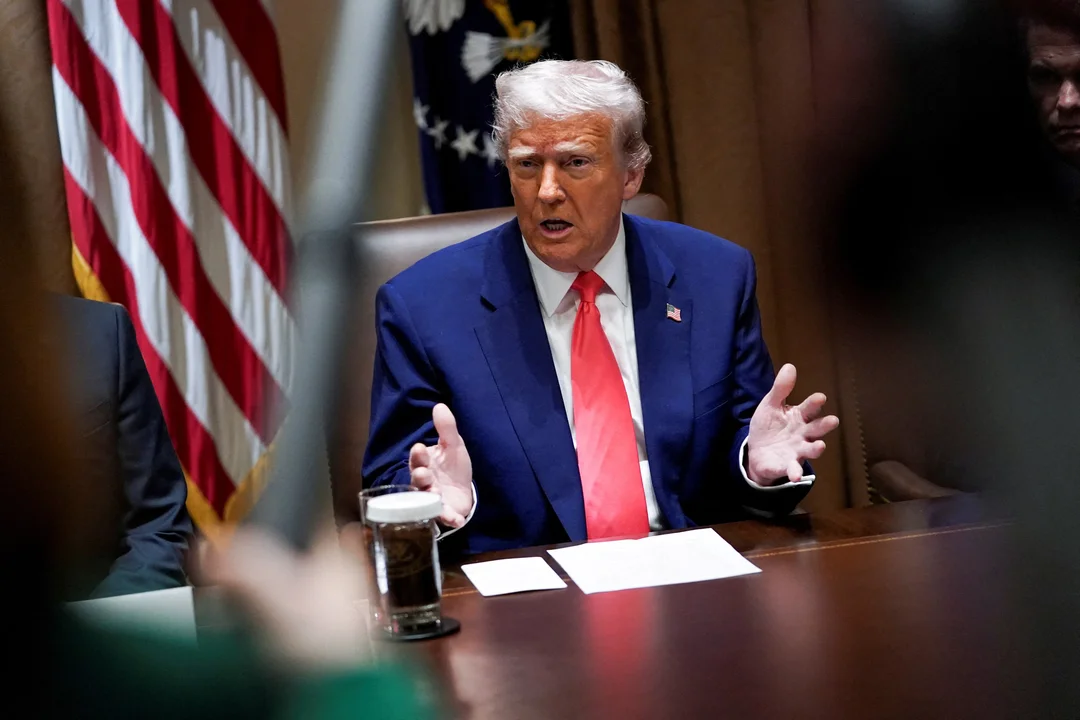
Trump Administration Ends Temporary Protected Status for Thousands of Afghans and Cameroonians, Sparking Concern and Outrage
In a landmark and highly controversial move, the Trump administration has announced it will end Temporary Protected Status (TPS) for more than 20,000 migrants from Afghanistan and Cameroon, putting thousands at imminent risk of deportation starting as soon as May and June. The policy shift, confirmed by the Department of Homeland Security on Friday, marks one of the harshest blows yet to legal immigration protections in the United States—and has drawn sharp criticism from refugee advocates, lawmakers, and human rights groups.

The TPS program was originally established as a humanitarian lifeline, granting recipients the right to live and work in the U.S. when conditions in their home countries—often violent conflicts, natural disasters, or catastrophic political turmoil—make return unsafe. Of the affected, approximately 14,600 Afghans and 7,900 Cameroonians have built legal lives in America, many allowed in after the collapse of the U.S.-backed government in Kabul and amid Cameroon’s spiraling violence since 2017.
Now, critics argue, this population will be forced to return to some of the world’s most dangerous environments. Afghanistan is still under Taliban control, notorious for its severe restrictions on women and girls and widespread human rights abuses. As Krish O’Mara Vignarajah, president of the refugee resettlement group Global Refuge, charged, “For Afghan women and girls, ending these humanitarian protections means ending access to opportunity, freedom, and safety. Forcing them back to Taliban rule, where they face systemic oppression and gender-based violence, would be an utterly unconscionable stain on our nation’s reputation.”
In Cameroon, armed conflict between Anglophone separatists and Francophone government forces has wrought extrajudicial killings, displacement, and attacks on civilians—conditions that prompted U.S. lawmakers just earlier this month to urge the administration to continue protections. “The country’s worsening security situation, combined with its ongoing humanitarian crisis and human rights abuses, makes return impossible for Cameroonian nationals,” the lawmakers cautioned. Nevertheless, the administration now insists that both countries no longer meet strict TPS criteria.
This policy marks a continuation of former President Trump’s aggressive efforts to curtail both legal and illegal immigration. Throughout his tenure, the administration has made repeated attempts to dismantle TPS for various nationalities—often encountering roadblocks in the courts. The latest move fits within a broader political drive for “mass deportations,” and follows recent efforts to revoke protections for Venezuelans, as well as to terminate the humanitarian parole program that has offered sanctuary to hundreds of thousands of Haitians, Cubans, and other vulnerable groups.
For advocates and many in Congress, the implications are dire and deeply personal. Veterans groups and bipartisan politicians have called for more robust legal avenues for Afghans who worked with U.S. forces. Yet, unless the courts or Congress intervene, thousands of Afghans and Cameroonians—many of whom now call America home—face uncertain futures, caught between legal technicality and humanitarian obligation.
This story not only raises urgent questions about America’s humanitarian commitments but also ignites debate ahead of the next political cycle: How far should the country go to protect those fleeing violence—and what does this decision say about the nation’s values in a time of global crisis?
What are your thoughts on the Trump administration’s move to rescind TPS for Afghans and Cameroonians? Share your perspectives and join the conversation below.